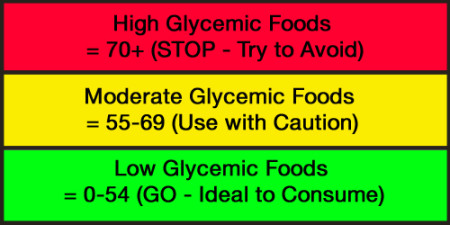Let me begin by quoting a paragraph from Gyorgy Scrinis, a lecturer in food and nutrition politics and policy at the University of Melbourne. This is from a chapter called ‘Nutritionism and Functional Foods,’ which he contributed to the book The Philosophy of Food. Scrinis went on to publish an entire book on this subject, Nutritionism: The science & politics of dietary advice.
Just prior to the following paragraph, Scrinis has been discussing the dietary advice, from the 1960s to the 1990s, that it was better to eat margarine than butter. (Added emphasis in this and the following quotations is mine.)
The “mistake” of inadvertently promoting transfat-laden margarine is one of several mistakes, revisions, and backflips in scientific knowledge and dietary advice over the past century. Other cases include advice regarding dietary cholesterol, eggs, low-fat diets, and vitamin B. Yet these revisions do not seem to have tempered the sustained and confident discourse of precision and control that continues to pervade nutrition science, nor the willingness to translate limited and partial scientific insights into definitive population-wide dietary advice. I refer to this nutritional hubris as the myth of nutritional precision, as it involves an exaggerated representation of scientists’ understanding of the relationship between nutrients, foods, and the body and a failure to acknowledge the limits of the nutrient-level perspective. At the same time, the disagreements and uncertainties that exist within the scientific community with respect to particular nutritional theories tend to be concealed from, or misrepresented to, the lay public.
Glycemic index: Less important than we thought
It appears that another piece of dietary advice is about to disappear: The glycemic index. JAMA recently published the study Effects of High vs Low Glycemic Index of Dietary Carbohydrate on Cardiovascular Disease Risk Factors and Insulin Sensitivity: The OmniCarb Randomized Clinical Trial, as well as an editorial on the subject, Role of Glycemic Index in the Context of an Overall Heart-Healthy Diet.
According to the editorial,
The unexpected findings of the study by Sacks et al suggest that the concept of glycemic index is less important than previously thought, especially in the context of an overall healthy diet.
The specific conclusion of the study reads as follows:
In this 5-week controlled feeding study, diets with low glycemic index of dietary carbohydrate, compared with high glycemic index of dietary carbohydrate, did not result in improvements in insulin sensitivity, lipid levels, or systolic blood pressure. In the context of an overall DASH-type diet, using glycemic index to select specific foods may not improve cardiovascular risk factors or insulin resistance.
Advising patients and the illusion of control
The editorial concludes with the advice that doctors should take “at least” three minutes of each patient’s office visit to assess lifestyle.
It is not a matter of good foods or bad foods (such as those high in glycemic index) but the overall dietary pattern. A medium rare steak once a month or ice cream and birthday cake at a birthday party should not need to cause dietary guilt, because it is the overall diet and level of physical activity that should be repeatedly assessed and emphasized.
Nice to hear, but just how accurately can a doctor assess a patient’s lifestyle in three minutes, especially in a ten-minute office visit?
My take on this: We live in a health culture that profits from making us anxious about risks to our health. One way we deal with this anxiety is to create an illusion of control, using things such as the glycemic index to guide us in choosing what we eat. One reason control is an illusion is that medicine is subject to continuous revision. Another is that, as Gyorgy Scrinis mentions in connection with food, the findings of nutritional science are not only transitory, but tend to be concealed from or misrepresented to the consuming public. In our attempt to exert control over our health, we should not neglect the ill effects of the anxiety created by our efforts.
Related posts:
When healthy eating becomes unhealthy
Healthy lifestyles serve political interests
The politics behind personal responsibility for health
The tyranny of health
Carbs are the new no-no
Journal of the History of Medicine and Allied Sciences – July 2014
What we used to eat
Image source: Natural Health Advisory
References:
David M Kaplan, editor (2012), The Philosophy of Food
Gyorgy Scrinis (2013), Nutritionism: The science & politics of dietary advice
Robert H. Eckel, Role of Glycemic Index in the Context of an Overall Heart-Healthy Diet, JAMA, December 17, 2014, Vol 312, No 23, pp 2508-2509 ($)
Frank M. Sacks, Vincent J. Carey, Cheryl A. M. Anderson, Edgar R. Miller III, Trisha Copeland, Jeanne Charleston, Benjamin J. Harshfield, Nancy Laranjo, Phyllis McCarron, Janis Swain, Karen White, Karen Yee, and Lawrence J. Appel, Effects of High vs Low Glycemic Index of Dietary Carbohydrate on Cardiovascular Disease Risk Factors and Insulin Sensitivity: The OmniCarb Randomized Clinical Trial, JAMA, December 17, 2014, Vol 312, No 23, pp 2531-2541 ($)



Sorry, comments are closed for this post.